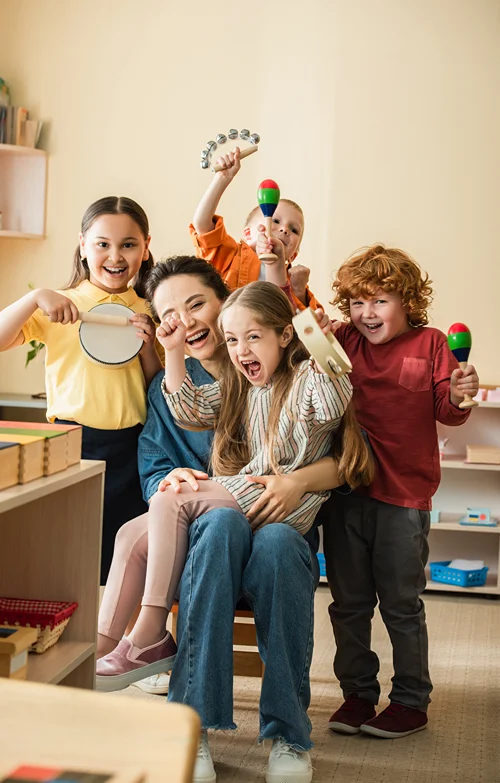The Importance of Kindergarten in Early Childhood Development
The role that kindergarten plays in a child’s development cannot be overstated. Kindergarten is used to bridge early life at home to formal education, which means introducing them to learning environments that support their academic, cognitive, social, and emotional growth.
As such, it is vital you choose a program that will help them thrive. Kindergarten will lay the foundation for your child’s approach to learning and development both inside and outside of the classroom.
This is achieved in a few different ways:
Emotional & Social Development
One of the most important aspects of kindergarten is that it is a chance for your child to interact and engage with other children in a structured setting. This will help them develop crucial social skills over time, including listening skills, teamwork, empathy, and conflict resolution.
Of course, you want your child to develop strong social skills and be able to express themselves through emotional development, as these will be key both in school and in life.
Structured Learning Through Play
Kindergarten will also introduce your child to structured learning, which will be a huge part of their life as they get older. This is often done through free play, which is proven to be a highly effective way for young children to learn about cause and effect while stimulating curiosity and creativity.
It is worth looking at a private kindergarten, which will involve the Montessori education model, which places an emphasis on self-directed, hands-on learning that can help create a sense of independence and personal responsibility – attributes every parent wants to instill from a young age.
Cognitive & Language Development
At this age, children are developing rapidly. This means that you want to support this development with activities that will enhance literacy, numeracy, and problem-solving skills. Kindergarten teachers will begin to lay the foundation in key topics like English, science, and math, which will set them up for future academic success.
With free play a core part of the curriculum, kindergarten can also be helpful for developing fine motor skills and language development through activities like storytelling and show and tell.
Setting Up for Future Success
You will find that this is the age where children start to develop their approach to learning and who they are as people. Of course, you will want to do everything you can to make sure that your child is curious, hard-working, patient, and respectful. Kindergarten will play an instrumental role in this and shape their approach to learning and overall personality.
In addition to this, kindergarten can provide an opportunity to identify both strengths and areas where they need support. Early intervention can be key for overcoming difficulties at a young age.
As you can clearly see, kindergarten plays an incredibly important role in a child’s development and will lay the foundation for their growth. Kindergarten is much more than the start of your child’s school journey – it will support their emotional and social development, create a sense of independence, help with cognitive and language development, and set them up for future success both inside and outside of the classroom.






